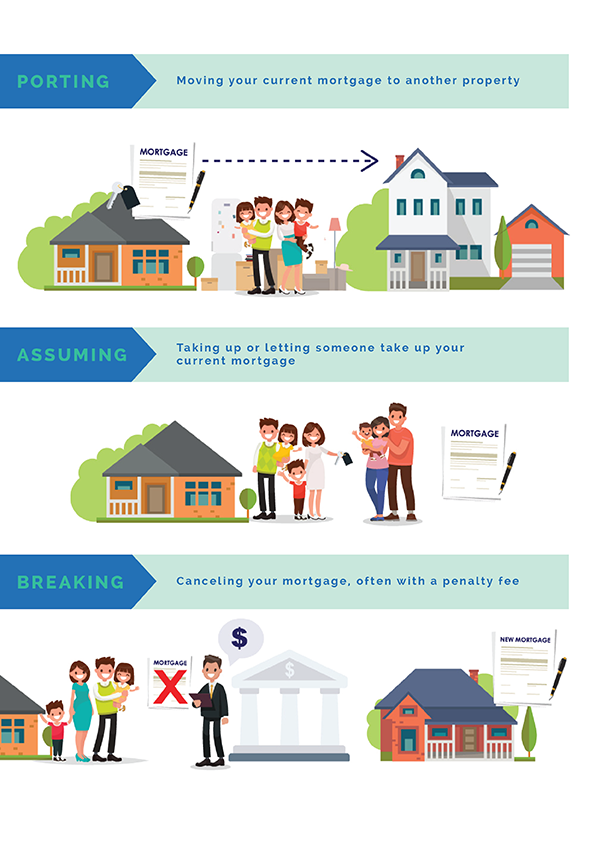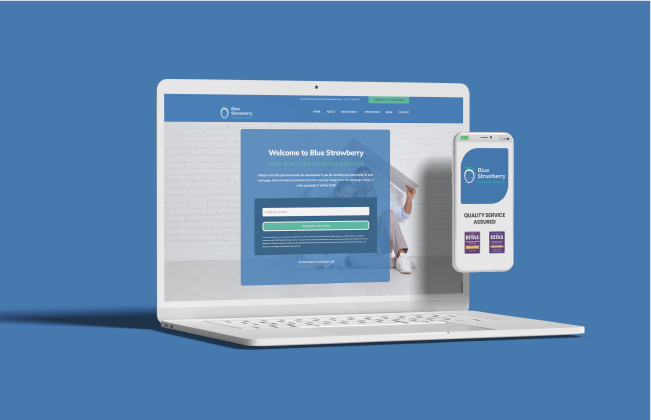Before you sell your home, you will have to decide what to do with your current mortgage. There are three possible options: porting your mortgage, assuming a new mortgage, or breaking your mortgage.
You need to understand what each of these options entails so you can better decide which is best for you. However, not all options are available to all home buyers. Which options are available to you will depend on a variety of factors.

Porting over a Mortgage
Porting a mortgage means you would be taking your current mortgage, with its rates and terms, and moving it to another property. This is only an option if you are buying another home at the same time you are selling your current one.
However, not all mortgages are portable. For example, many variables or adjustable-rate mortgages are typically not portable or have restrictions put in place.
Before you begin house hunting, you should sit down with your mortgage broker and discuss your current mortgage. This will help you determine if your current mortgage is portable, and whether or not porting your current mortgage to your new home makes the most sense for you.
Porting an existing mortgage takes time, and will often require a whole new qualification process before you are allowed to make such an action.
Assuming a Mortgage
Assuming a mortgage is a financial arrangement between the seller, the seller’s lender, and the buyer, and involves transferring the seller’s current mortgage to the buyer.
As a seller, offering to allow the buyer to assume your mortgage can make your property more attractive. If you have a low mortgage rate, and mortgage rates are currently rising, offering potential buyers the option of assuming a mortgage with a low rate can help you make your property stand out.
Buyers who assume a seller’s mortgage should be prepared to pay the difference between the purchase price and the outstanding amount on the mortgage. Once that is taken care of, you will then assume the regular mortgage payments using the seller’s original terms. Most lenders will allow their mortgages to be assumed with full qualification.
Breaking a Mortgage
Breaking a mortgage is the decision most homeowners make when selling their homes, particularly if interest rates are low. Breaking a mortgage means that you are cancelling your original mortgage agreement, so you will need to pay your lender a penalty fee.
Mortgage penalty fees are typically involved either three months of interest or an interest rate differential, whichever option is greater. Not all lenders calculate interest rate differential the same and part of choosing the best mortgage should take into account how penalties are calculated. However, in many situations, it will make sense to cancel and payout an existing mortgage to gain a better overall mortgage option on the new property.
What is Best For You?
Before you make a decision on what to do with your mortgage, sit down with a mortgage broker to discuss your options. Even though you might be thinking of one of the options above, it could require a new approval process determining if you will be able to do what you want or not.
Would you like to know more?
If you have any questions, would like to know more or get help from our award winning team call 0151 459 2912, email info@bluestrawberryfinancialservices.co.uk or click here to book an appointment.






MORE ARTICLES
Introducing our brand new website
Mark Pollard2021-12-15T12:58:49+00:009 December 2021|

